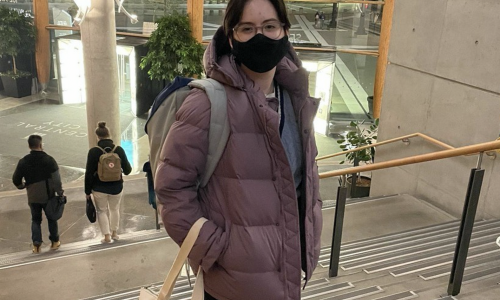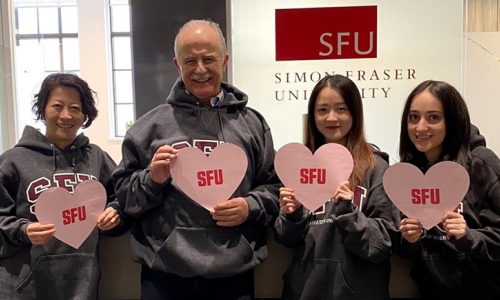
There are many tips on networking to get a job, but what about networking while you’re already on the job?
Networking within the workplace can be a very rewarding activity, especially as a Co-op student, because it allows you to learn what kinds of opportunities are out there for you from actual industry professionals. It’s important to note that networking does not mean giving your resume to every contact you make, hoping that someone somewhere will throw a job opportunity your way. Rather, it’s about creating a “network” of people with whom you can exchange useful information, enabling you to grow professionally.
When networking on the job, some of the best people to talk to are your co-workers. Most companies will be happy to help Co-op students as they explore and research their industry. It could be more difficult to do this after you graduate, so take advantage of the chance while you’re still a student. When looking to make potential contacts, remember to make a good impression by being personable to everyone, and introducing yourself to new faces. Never be afraid to ask questions during the appropriate time. By doing so, it’s more likely that people will be more willing to share their expertise with you and become a part of your network.
A Students' Experience
Mila Lukic’s first Co-op term was at Cardiome Pharma Corp. as a Support Synthetic Chemist. While she was mostly in the company of other scientists in the medicinal lab, Mila also had the opportunity to meet with staff who worked at the lab’s business development department. This helped her realize the many steps and specialized roles that are required in creating a single product. This included the lab technicians, research, testing, business development, marketing teams, and more! By meeting with employees in other departments, Mila got a better sense of what kinds of opportunities are available in her field – not just roles in the lab but in other departments with different specializations as well. Mila went on to complete Co-op work terms focusing on business and consulting and graduated with a joint major in Molecular Biology & Biochemistry and Business Administration with diversified experience in lab work and business consulting.
The Information Interview
One of the most valuable ways that you can learn more about your co-workers is to conduct an informational interview with them. Start by consulting your direct supervisor and let him or her know that you are interested in finding out more about the organization you work for and how your co-workers got to where they are today. Target your search and ask your supervisor to refer you to people who may be able to provide you with the information and insight you’re looking for.
By initiating the interview, you can get a better grasp of the type of work involved in a specific job. Because this is NOT an interview to get the job, be sure not to sound as though you are pitching yourself to the interviewee. Schedule the session ahead of time so that the interviewee can be prepared (barging in on someone with a bunch of questions to ask isn’t the best way to make a contact).The interview should be short, no more than 20 minutes. Like any job interview, take notes and send a thank you letter to the interviewee for their time as a follow up.
Informational interviews aren’t the only option. You can still network on the job by getting involved wherever you can by simply keeping your eyes and ears open for new opportunities. This could be an extra project you offer to take on, or a larger sub-committee project your supervisor allows you to join. By doing so, others are bound to notice your work and determination!
So take advantage of your time on the job and come away not only with great skills but with valuable insight from your co-workers!














